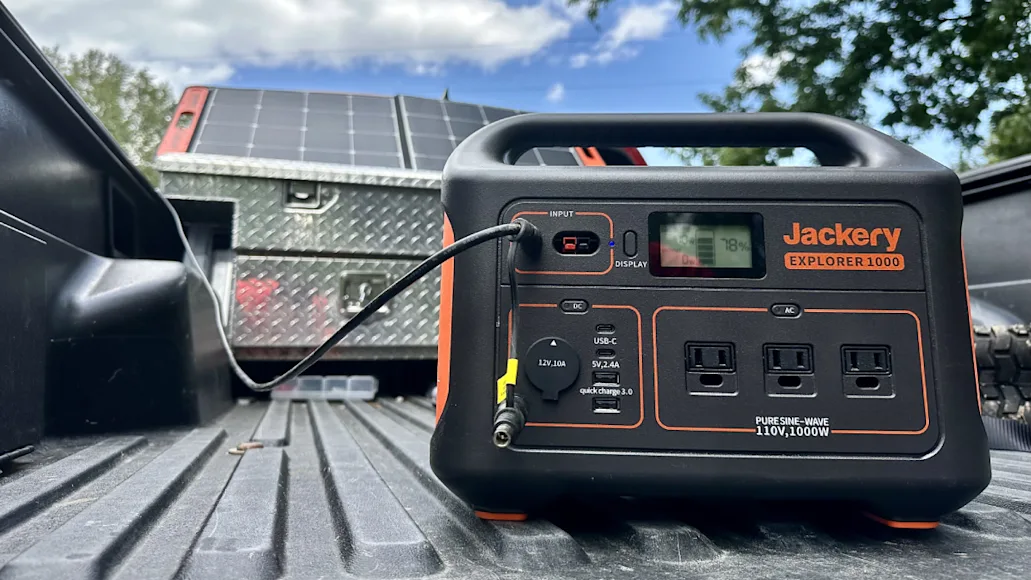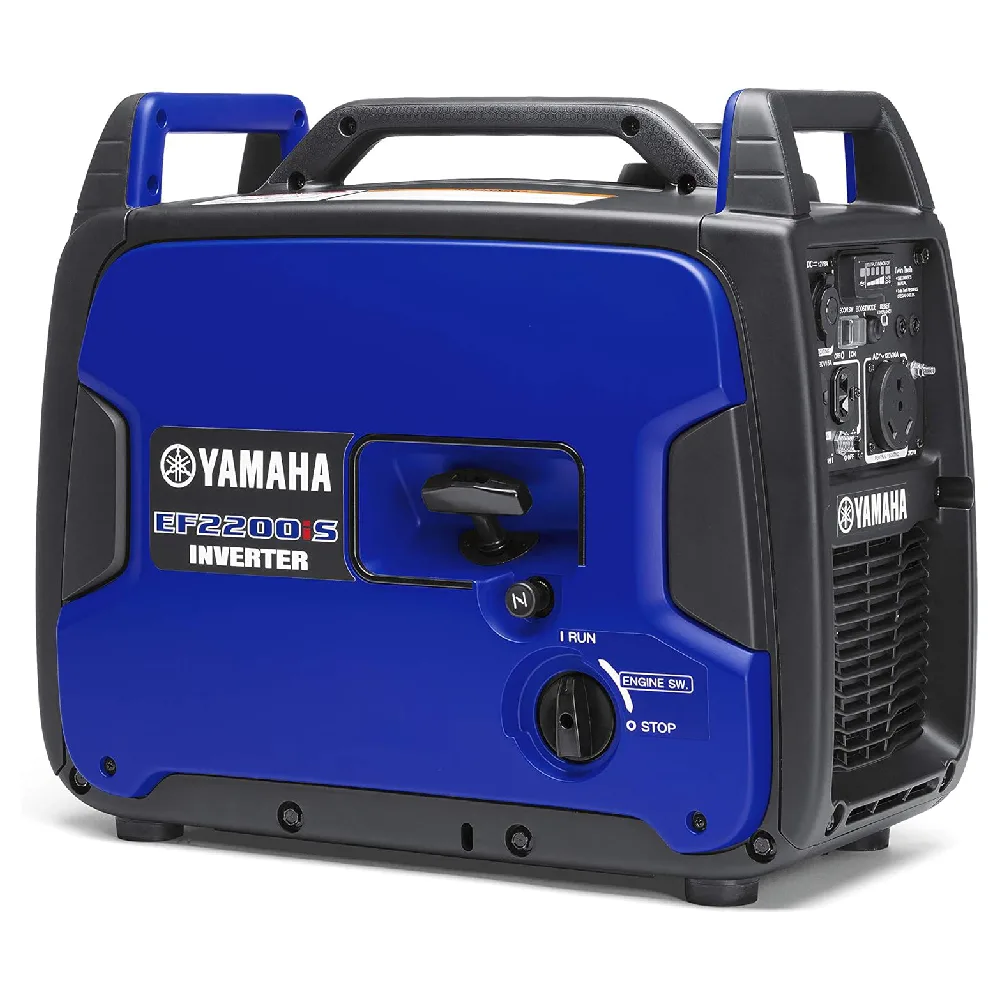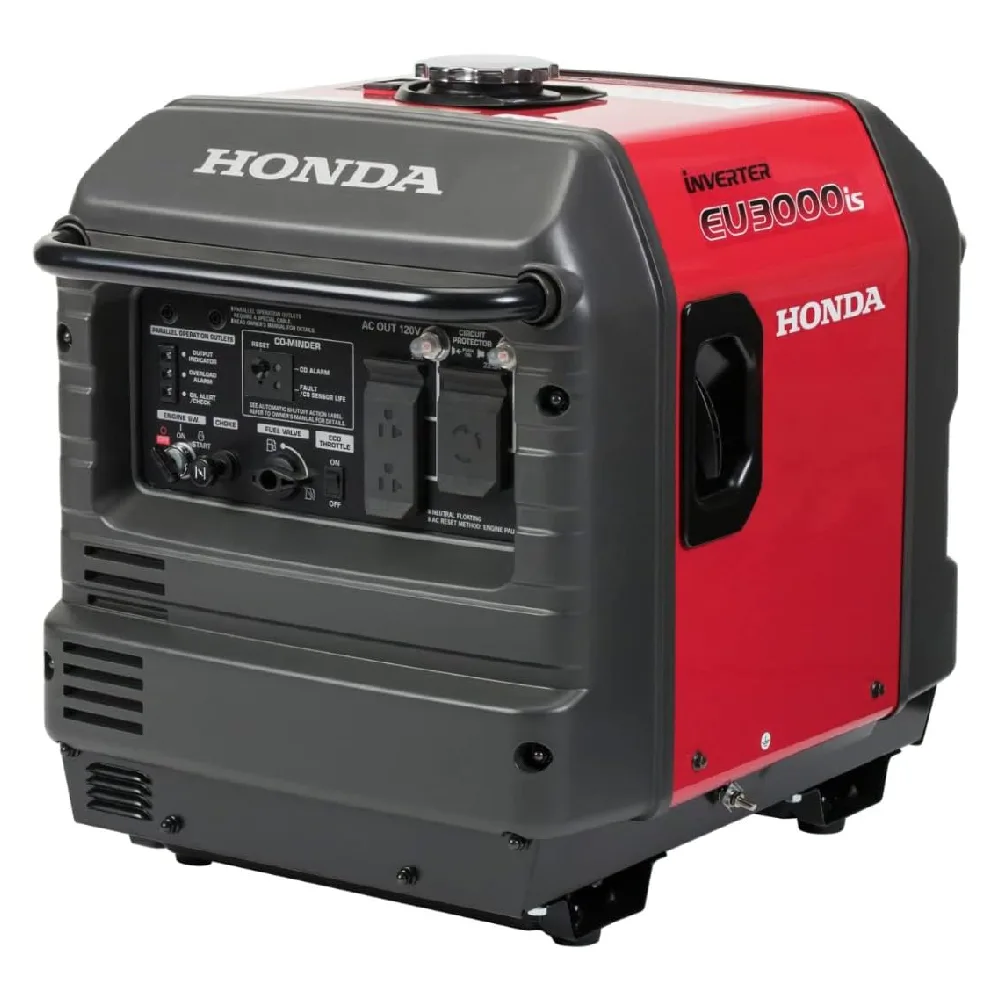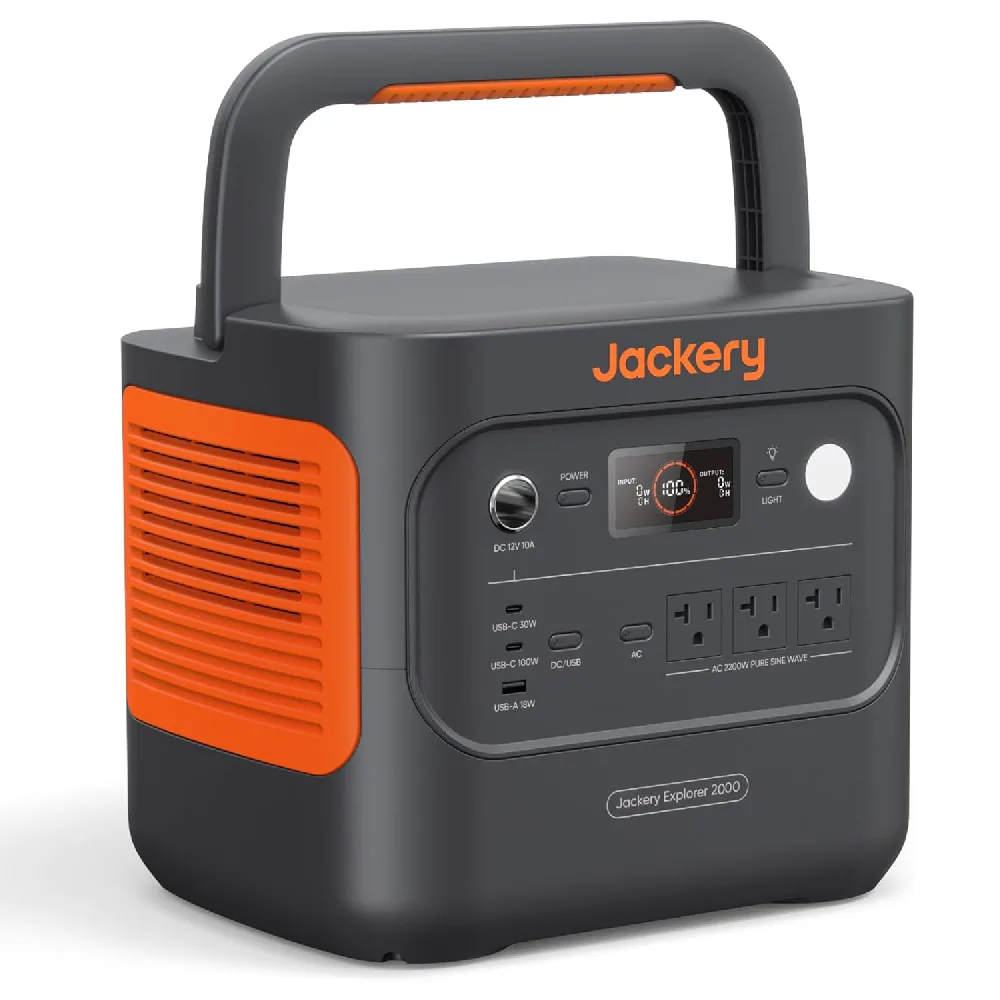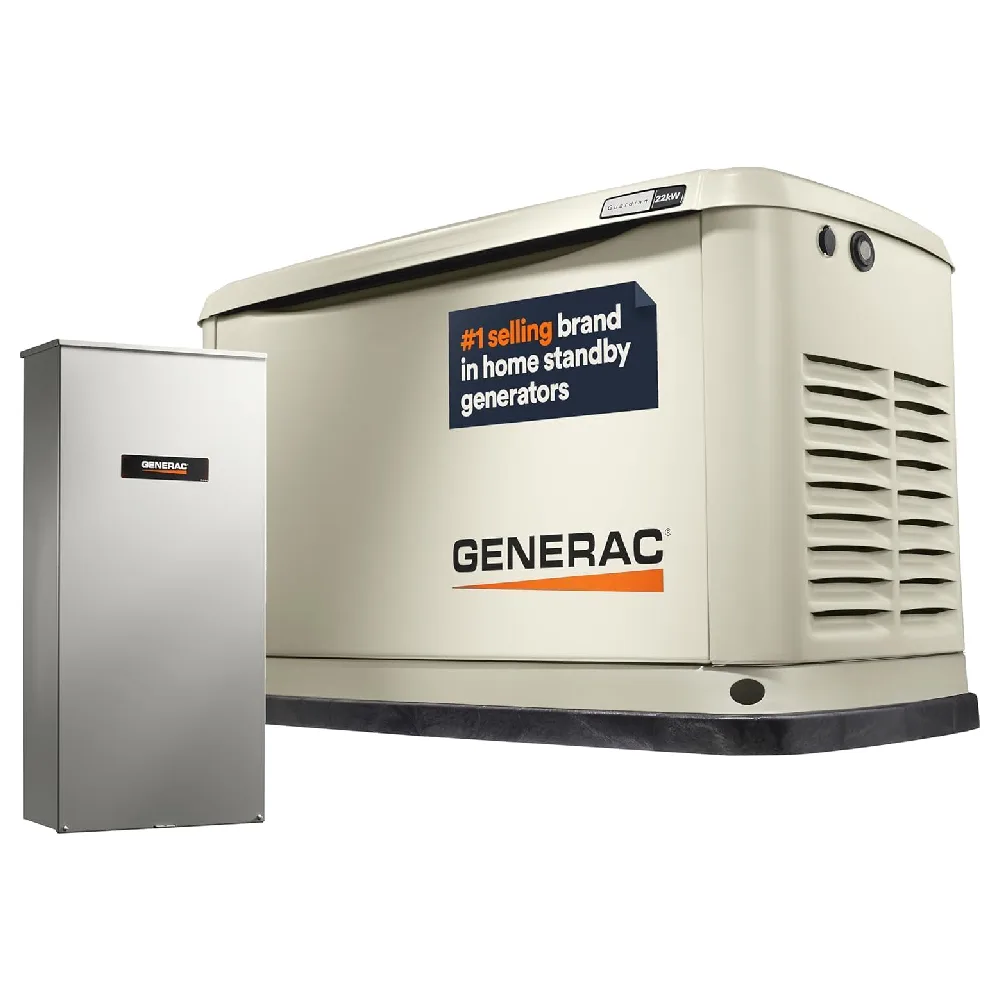We may earn revenue from the products available on this page and participate in affiliate programs. Learn more
There are a lot of solid reasons to have an inverter generator. Without power, you are cut off from just about everything, and while that may feel like a great idea at times, it can also be a pretty scary and dangerous proposition. Whether you’re looking to power your camp, RV or cabin or you want a backup plan should the power grid go down from a storm or other event, having your own power supply can be a lifesaver. At the very least, a portable power station can give you worthy peace of mind.
But generators are an investment, so you’ll want to do your research ahead of time. Not sure which one to get? We tested some of the best inverter generators for 2023.
Best Overall: Jackery Explorer 2000 Pro
Best for RVs: Champion 8,750-Watt Portable Inverter Generator
Best Large: Generac Guardian 22kW Generator
Best Portable: Yamaha EF2200iS Inverter Generator
Quietest: Honda EU3000is Portable Generator
Best Solar: Jackery Explorer 2000 Pro
Specs
Wattage: 2,000
Capacity: 2160 Wh
Power: Solar
Pros
Fast charging
Silent
Renewable
Cons
Expensive
We’ve tried several different solar generators and the Jackery is far and away the best we’ve used, earning it our top pick. The unit is completely silent and self-reliant, making it as great a choice for off-the-grid life as it is for camping or outdoor adventures. The solar panels are tough and lightweight, and do a great job charging the unit quickly.
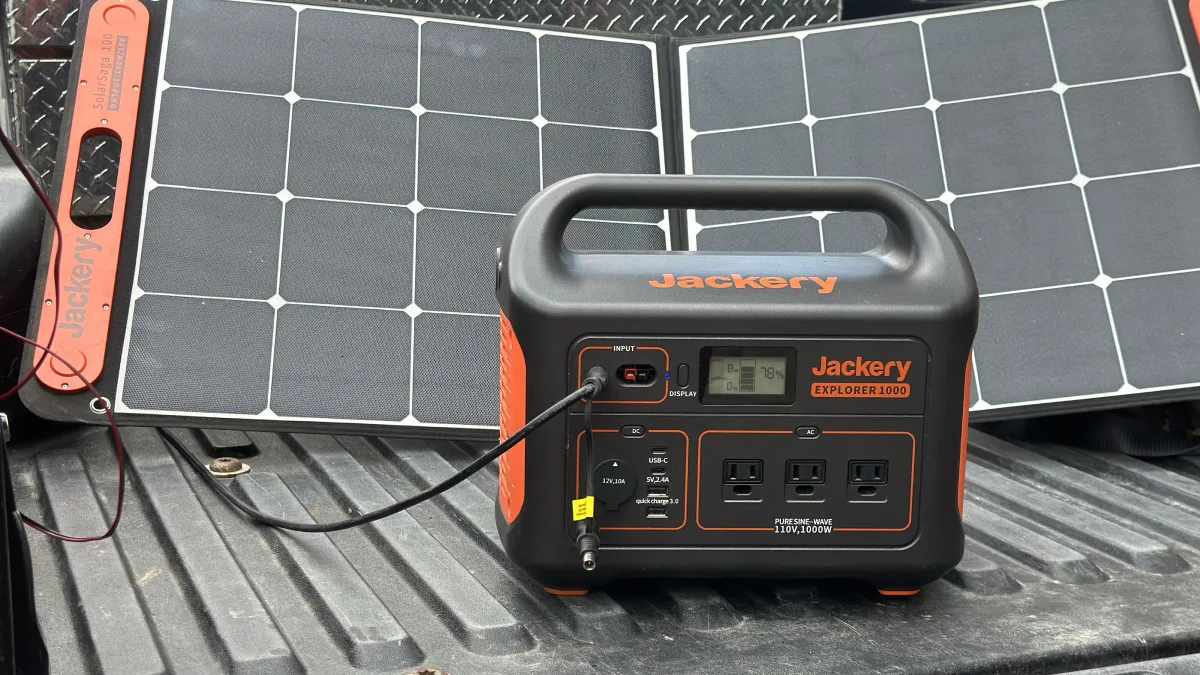
The base unit has a 2160Wh capacity and comes with a single SolarSaga solar panel. The unit is good for 200 watts and has three 2200W AC outlets. The single panel charges the unit in a few hours, and you can opt for more solar panels for faster and continuous charging.
The battery life is outstanding—we have run things like a refrigerator, air conditioner, TV, and computer simultaneously off of a single Jackery Explorer generator. The whole thing is extremely portable, and, like we said, completely silent, so should you want to enjoy the peace and quiet of the deep woods at night, this is a fantastic option.
Best for RVs: Champion 8,750-Watt Portable Inverter Generator
Specs
Wattage: 8,750
Capacity: 9,375 Wh
Power: Gas with 8-hour run time at 50% load
Pros
Powerful and portable
Remote start
Big enough for a big RV or small cabin, yet small enough to transport
Cons
Lower run time
If you’re looking for an inverter generator for your RV or cabin, this unit from Champion can get the job done. It has the power you need to run all of your electrical equipment, and has a strong reputation for quality that helped get it on this list. It produces 7,500 running watts for up to eight hours on 50% load with a full tank of gas. The 420cc four-cycle OHV motor runs pretty quiet and has a remote starter with an 80-foot range, so you don’t have to go outside to get it running. Cold weather isn’t going to hold things up, either, thanks to the cold-weather starter system that Champion designed (which also makes this a great unit for deer camp).
The Champion has four 120V 20A GFCI protected household outlets, a 120/240V 30A locking outlet, and a 120/240V 50A outlet. On the protection side, it has the company’s Volt Guard built-in surge protector, push-to-reset circuit breakers, and a low-oil shut-off switch that keeps it from burning up the motor should the oil levels get too low. The unit rides in a protective steel rolling cage with wheels and a handle to help make it easier to move around and set up.
Best Large: Generac Guardian 22kW Generator
Specs
Wattage: 22,000
Capacity: 240 volts
Power: Natural gas/LP Gas
Pros
Compete power back up
Automatic start
Made to run for extended periods of time
Cons
Higher cost
Uses up to three gallons of natural gas per hour
There is something to be said for being prepared, and having a home back-up generator is definitely a step in the right direction. Ever have a freezer full of delicious fish and game meat go bad because of a power outage that lasted longer than expected? We have! Prevent that with this home generator from Generac, which kicks in the moment the power goes out with 22,000 watts of power—more than enough for most homes.
It runs off natural LP gas and is compatible with the brand’s solar power systems for even more energy independence. The Generac generator runs quiet yet requires a little maintenance, so you should stop it frequently and check the air filter and oil supply. The only downfalls are that this unit is a little on the pricey side, but it’s worth it for what you get. It also uses LP gas which can be more expensive. All that said, however, it’s a great investment if you don’t want to be without power. It’s especially good for areas that experience frequent power outages.
Best Portable: Yamaha EF2200iS Inverter Generator
Specs
Wattage: 2,200
Capacity: 120 volts
Power: Gas
Pros
Extremely quiet
Easy starting
Runs for a long time on low-power load
Cons
None
I’ve been using one of these amazing little Yamaha inverter generators for years now and feel it is something every outdoor enthusiast needs to own. If you want a small, portable power supply that runs extremely quiet—especially on low power load—this unit does the trick. Yes, it’s small with a 79cc motor, so don’t expect it to power your home, but for small jobs, like for a small campsite or RV, it’s perfect. When on a low power load setting, it makes about as much noise as an electric fan and will run for up to 10 hours on a full tank of gas.
It automatically adjusts to what the power output is needed, so it is a set-it-and-forget-it type of unit. If the oil runs low, the unit stops, and a warning light lets you know that it requires a refill. Plus, it’s a Yamaha, so you know reliability is not a problem. We recommend it as one of the best portable generators for camping.
Quietest: Honda EU3000is Portable Generator
Specs
Wattage: 3,000
Capacity: 120 volts
Power: Gas
Pros
Electric start with recoil back-up
Long runtime
Very quiet
Cons
Higher price
Some of the highlights of this Honda inverter generator include its lack of noise and impressive runtime. It’s super quiet, at just 50 to 57 dBA depending upon load, and it will run for 19.6 hours on 3.4 gallons of gas. Not only that, it can also produce 3,000 watts of electric power and it’s safe to use for charging your electronics, like laptops, tablets, and phones. It’s very easy to start and get up and running thanks to the electric starter, and should that battery die, you have a rope recoil starter as a backup. Add into all of this the fact that it’s a Honda—a brand known for extreme quality—and you’ve got yourself a winning combination.
How We Picked the Best Inverter Generators
When we started making this list, it was easy because we’ve already tested and used most of the products included here. Some of the inverter generators included in this list have been tested, abused and passed around by us for years, and still continue to impress with how well they work. Our personal experience with the generators was supported by hours of research into the specs, pros, and cons.
What To Consider When Choosing an Inverter Generator
Power Output
The most important factor is power output. You have to know exactly how much power you will need, so that you get a generator that will handle that need. For whole-house needs, you are going to need a bigger generator—that could be a portable unit or a home backup model that is wired directly into your home’s power grid. Going too small can supply insufficient power to your appliance, as well as do damage to the generator.
Fuel Type
Fuel consumption is important, too. A generator that can’t run through the night likely isn’t ideal, especially if you need it to run things like a CPAP machine, refrigerator, or other equipment. You should also be aware of the type of fuel and the availability of that fuel. Solar is good if there is sunlight, but it won’t recharge at night, and if there is heavy cloud cover, you may not get what you need, either. The same can be said for gasoline or propane. If there is a major power outage, you might not be able to go to a gas station for a refill. Know your fuel needs and be prepared.
Noise Level
You also need to know what you are getting in terms of noise levels. Some generators are quieter than others. While solar generators are completely silent, some gas generators, like the Yamaha and Honda models, are also extremely quiet for portable units. If noise is an issue, know what you are getting.
Price
Cost is another consideration. If you have a budget, stick to it and get the best you can for that budget, but know that going with the least expensive option may not be the best route. Cheap generators can fail, and usually do at the worst possible time.
FAQs
Q: What precautions do I need to take with an inverter generator?
The number one precaution to take into account is ventilation. You absolutely cannot run a generator inside a structure. Just like a truck motor, the gas motor will emit carbon monoxide—a lethal combination for enclosed spaces. The only generator safe for interior use is a solar-powered unit.
Q: How big of a generator do I need for my RV?
To determine the size of inverter generator you need for your RV, consult your owner’s manual for the power output required for the systems in your RV, such as the lights, refrigerator, etc. This will tell you exactly how much power you will need your generator to produce. The same can be said for your cabin or even stuff you use in your tent or overlander.
Q: How long can I run a portable inverter generator?
Portable inverter generators and even home backup generators are made to be used sparingly, so they will need a rest at some point. Most agree that giving the motor time to cool down and recover at least once every day is good. This gives you time to check the oil and connections, too. Continuous use for days on end is never recommended.
Q: How far should I keep the generator from my house or camp?
It is recommended that you keep your inverter generator at least 20 feet from your house, cabin, RV, or camp. This gives you some space to protect from fire and/or carbon monoxide.
Final Thoughts
An inverter generator is something that everyone should have, whether you are an avid outdoor enthusiast, or someone looking for a backup power supply for those times when the lights go out. Do your research and get the optimal size for your needs and keep the unit maintained regularly so it will be ready when you need it. If used correctly, the best inverter generators will be there to keep you safe and comfortable regardless of how and when you need to use them.
Why Trust Us
For more than 125 years, Field & Stream has been providing readers with honest and authentic coverage of outdoor gear. Our writers and editors eat, sleep, and breathe the outdoors, and that passion comes through in our product reviews. You can count on F&S to keep you up to date on the best new gear. And when we write about a product—whether it’s a bass lure or a backpack—we cover the good and the bad, so you know exactly what to expect before you decide to make a purchase.

